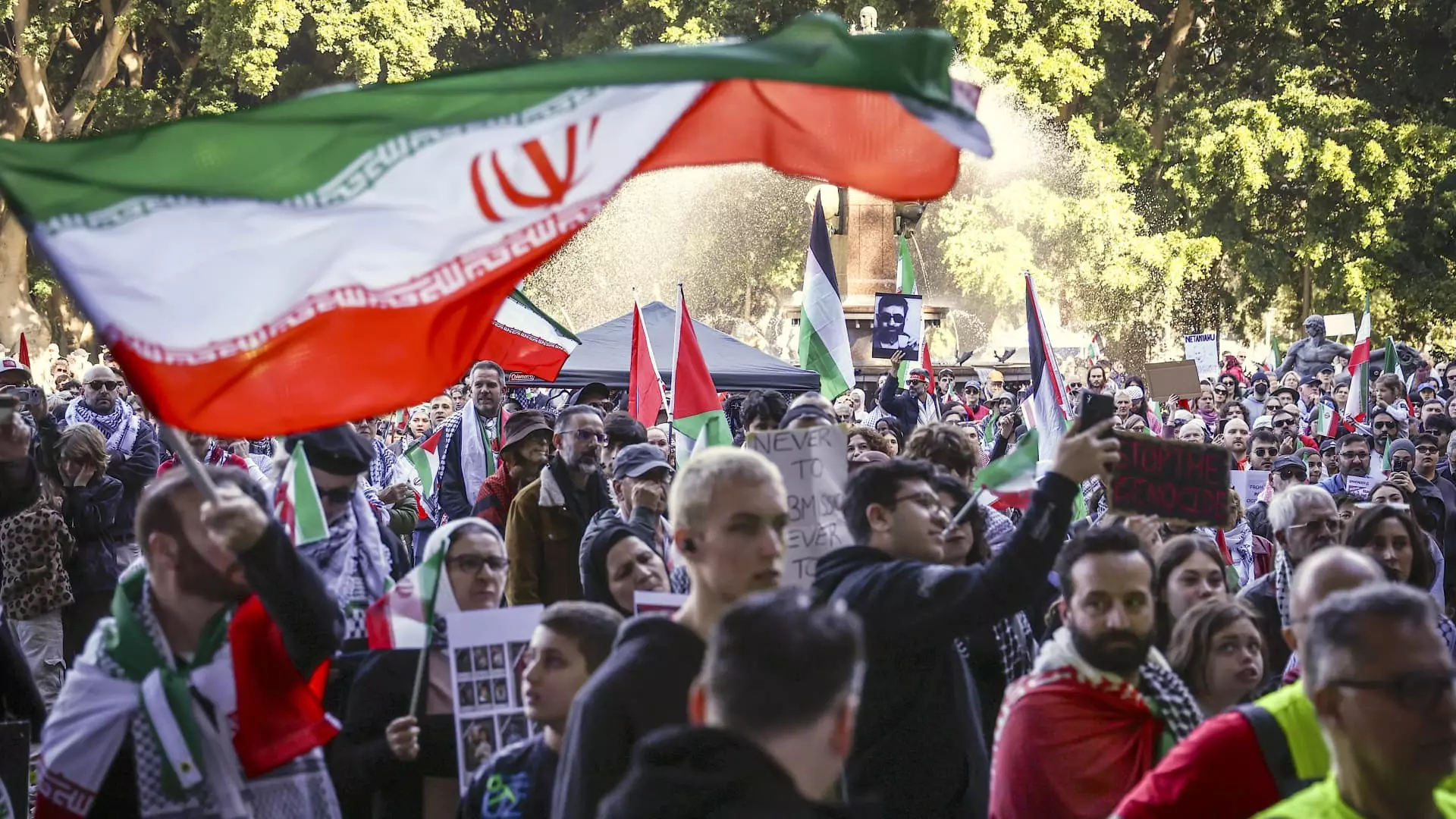The current friction between Iran and Israel, compounded by the recent military aggressions from the United States, is a disheartening testament to the fragility of diplomacy in one of the world’s most volatile regions. Iranian Foreign Minister Abbas Araghchi’s vehement response to U.S. airstrikes on essential nuclear enrichment facilities illustrates the high stakes involved. The geopolitical landscape, already imbued with distrust and hostility, has been further destabilized, raising alarm bells among many nations. The initial reaction from Tehran—a vow to uphold its sovereignty at all costs—raises questions about the repercussions of such aggressive tactics favored by the United States and its allies.
Understanding this complex interplay is crucial. By labeling the U.S. military actions as “outrageous,” Araghchi is not just reacting to a single event; he is articulating a broader sentiment that reflects Iran’s historical narrative of perceived victimhood and defiance against external pressures. In a region scarred by decades of conflict, this perspective resonates deeply, making it essential for various stakeholders to approach the situation with care and an earnest commitment to diplomacy.
The Cycle of Retaliation
The missile strikes initiated by Iran against Israeli military installations represent a cyclic pattern of retaliatory warfare. With each aggressive act, be it from Iran or Israel, the potential for a more extensive confrontation increases exponentially. As the Israeli Defense Forces (IDF) set off sirens in anticipation of Iranian strikes, we bear witness to a dangerous escalation that could have catastrophic consequences for innocent civilians caught in the crossfire. The continuous exchange of missile fire, especially one that has seen the tragic loss of over 400 Iranian lives already, showcases the human cost involved—an aspect that is all too often sidelined in political discourses.
When President Trump celebrates such military actions as a “spectacular success,” it shifts the conversation from humanitarian concerns to hollow rhetoric of victory and aggression. This triumphalism, devoid of empathy, further alienates the Iranian populace and breeds resentment against the West. At the same time, it emboldens Israeli leadership, who rally behind such narratives without considering the long-term ramifications of their policies. The deafening silence from the global community about the civilian toll underscores a troubling irony: while military actions are praised as necessary for national security, the humanitarian impact becomes merely collateral damage.
The Failed Diplomacy and Its Consequences
The collapse of diplomatic efforts exemplifies a pivotal failure that has profound implications. Araghchi’s assertion that U.S. and Israeli actions have derailed crucial talks emphasizes a critical point of contention: the lack of sustained dialogue and negotiation. As attempts to reach a peaceful resolution fade away, it becomes imperative for international actors to reassess their role as peacekeepers rather than aggressors. The mention of the E3—which encompasses Germany, France, and Britain—highlights the shared responsibility among world powers to engage in meaningful diplomacy, bypassing the pitfall of aggressive military action that only serves to escalate tensions.
Referring to the increasing alarm from regional powers such as Saudi Arabia and Qatar regarding U.S. actions reflects an important aspect of this conflict—the interconnectedness of Middle Eastern nations. The ripple effect of destabilization often leads to a broader confrontation involving multiple states, making the quest for diplomacy even more urgent. Initiatives for serious negotiations are not merely wishes for peace; they are essential to restoring stability in a region that has seen enough bloodshed.
The Human Cost and the Global Response
As both Israel and Iran exchange attacks—each strike further hardening animosities—what is lost in this fervor is the human cost. The reported deaths of civilians, on both sides, underscore an appalling reality: warfare ravages lives indiscriminately. The international community cannot turn a blind eye to the suffering this conflict inflicts; a collective response is necessary to advocate for restraint and reconciliation. The challenge lies in overcoming the entrenched narratives that frame the conflict as zero-sum, prompting leaders to view each other as adversaries rather than potential allies.
U.N. Secretary-General Antonio Guterres’ concerns about the potential for escalation speak to an urgent need for credible, impartial mediation. Yet, it seems that with each passing day, the hope for diplomatic solutions fades further into the background, overshadowed by the clang of war drums. For true progress to emerge, it is essential to foster dialogues that prioritize humanity over hostilities—an imperative that calls for an immediate reevaluation of strategies in dealing with such conflicts. The warnings are loud and clear: any failure to shift toward a diplomatic framework may lead to tragedy, not just for Iran but for the entire region.


Leave a Reply